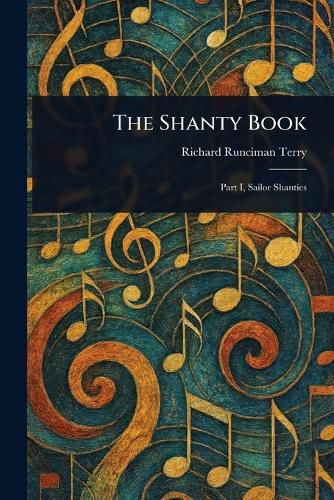Readings Newsletter
Become a Readings Member to make your shopping experience even easier.
Sign in or sign up for free!
You’re not far away from qualifying for FREE standard shipping within Australia
You’ve qualified for FREE standard shipping within Australia
The cart is loading…






This title is printed to order. This book may have been self-published. If so, we cannot guarantee the quality of the content. In the main most books will have gone through the editing process however some may not. We therefore suggest that you be aware of this before ordering this book. If in doubt check either the author or publisher’s details as we are unable to accept any returns unless they are faulty. Please contact us if you have any questions.
Dive into the heart of maritime tradition with "The Shanty Book, Part I, Sailor Shanties," a timeless collection of sea songs compiled by Richard Runciman Terry. This meticulously prepared edition preserves the authentic spirit of these historical folk songs, offering a unique glimpse into the lives and work of sailors from bygone eras.
Explore a rich tapestry of sea shanties and sailor songs, each piece a testament to the power of music in shaping culture and community. Discover the rhythms that once propelled ships across oceans, the melodies that echoed through ports, and the stories woven into the fabric of maritime music.
Whether you're a seasoned ethnomusicologist, a folk music enthusiast, or simply captivated by the allure of the sea, this volume provides an invaluable resource and an enduring source of enjoyment. Immerse yourself in the history and artistry of sea music with this carefully curated collection of sailor shanties.
This work has been selected by scholars as being culturally important, and is part of the knowledge base of civilization as we know it.
This work is in the public domain in the United States of America, and possibly other nations. Within the United States, you may freely copy and distribute this work, as no entity (individual or corporate) has a copyright on the body of the work.
Scholars believe, and we concur, that this work is important enough to be preserved, reproduced, and made generally available to the public. We appreciate your support of the preservation process, and thank you for being an important part of keeping this knowledge alive and relevant.
$9.00 standard shipping within Australia
FREE standard shipping within Australia for orders over $100.00
Express & International shipping calculated at checkout
This title is printed to order. This book may have been self-published. If so, we cannot guarantee the quality of the content. In the main most books will have gone through the editing process however some may not. We therefore suggest that you be aware of this before ordering this book. If in doubt check either the author or publisher’s details as we are unable to accept any returns unless they are faulty. Please contact us if you have any questions.
Dive into the heart of maritime tradition with "The Shanty Book, Part I, Sailor Shanties," a timeless collection of sea songs compiled by Richard Runciman Terry. This meticulously prepared edition preserves the authentic spirit of these historical folk songs, offering a unique glimpse into the lives and work of sailors from bygone eras.
Explore a rich tapestry of sea shanties and sailor songs, each piece a testament to the power of music in shaping culture and community. Discover the rhythms that once propelled ships across oceans, the melodies that echoed through ports, and the stories woven into the fabric of maritime music.
Whether you're a seasoned ethnomusicologist, a folk music enthusiast, or simply captivated by the allure of the sea, this volume provides an invaluable resource and an enduring source of enjoyment. Immerse yourself in the history and artistry of sea music with this carefully curated collection of sailor shanties.
This work has been selected by scholars as being culturally important, and is part of the knowledge base of civilization as we know it.
This work is in the public domain in the United States of America, and possibly other nations. Within the United States, you may freely copy and distribute this work, as no entity (individual or corporate) has a copyright on the body of the work.
Scholars believe, and we concur, that this work is important enough to be preserved, reproduced, and made generally available to the public. We appreciate your support of the preservation process, and thank you for being an important part of keeping this knowledge alive and relevant.